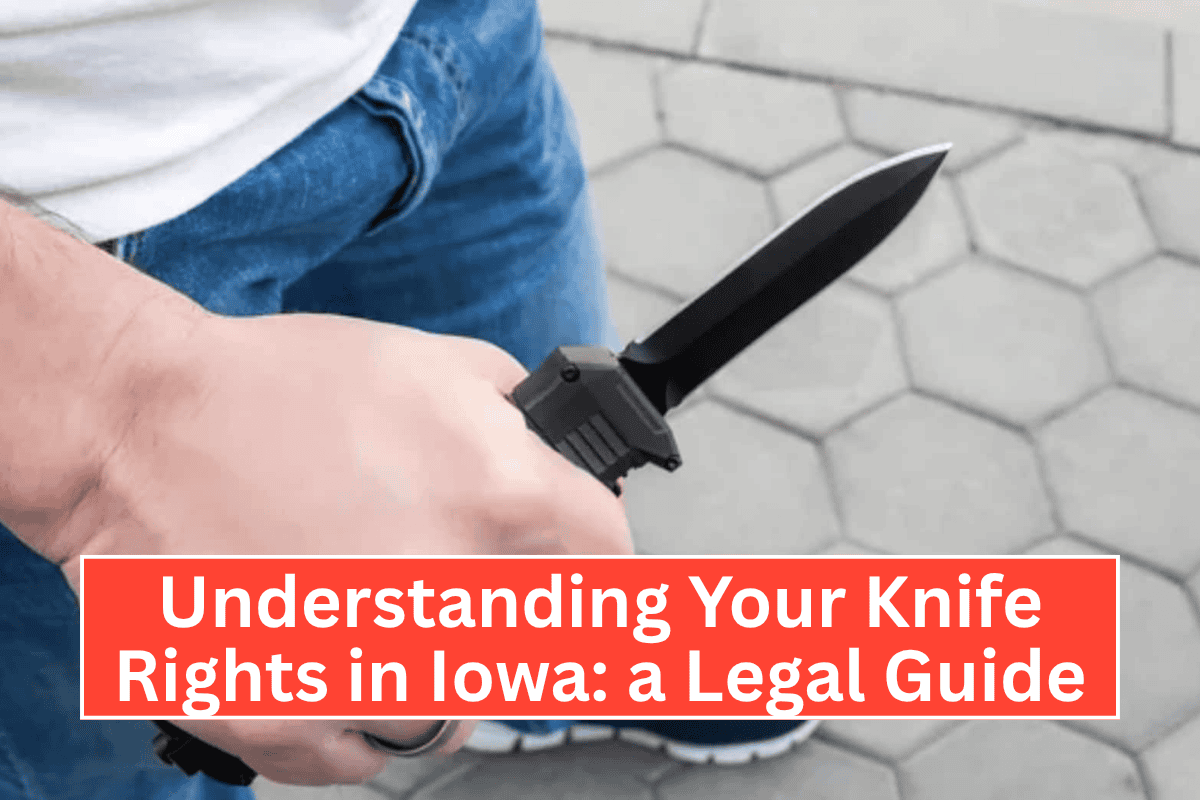Knives are common tools used for many purposes like hunting, cooking, and outdoor work. But when it comes to carrying knives in public, each state has different rules. In Iowa, the knife laws are mostly simple and clear, but there are still some important things you need to know—especially if you plan to carry a knife with you.
This guide breaks it all down so anyone can understand their rights and the limits when it comes to knives in Iowa.
What Knives Are Legal in Iowa?
In Iowa, people are allowed to own and carry many types of knives. There’s no specific list of banned knife types or blade sizes for regular citizens. You can legally have knives like:
- Pocket knives
- Hunting knives
- Utility knives
- Fixed-blade knives
These knives can be carried without much restriction, as long as you’re not using them to threaten or harm others.
What About Illegal Knives?
As of now, Iowa law doesn’t say any specific knife is illegal just because of its size or type. That’s good news for collectors and knife enthusiasts. But this doesn’t mean you can use or carry any knife however you want.
If a knife is used to hurt someone or if you’re carrying it with bad intentions, it can still lead to trouble with the law. Always double-check current laws, since rules can change over time.
Carrying Knives in Iowa: Open vs Concealed
Open Carry
You can openly carry most knives in Iowa. That means the knife is visible, like on your belt or in a sheath. As long as you’re not threatening anyone and using the knife responsibly, this is allowed in most public spaces.
Concealed Carry
Hiding a knife, such as keeping it in your pocket or under your clothes, is a little more complicated. If the knife is seen as a “dangerous weapon” under Iowa law, it might be illegal to carry it without special permission. Whether a knife counts as dangerous depends on how it’s made and how you’re carrying it.
A small pocket knife is usually okay, but something bigger or more tactical might raise legal issues.
Places Where Knives Are Not Allowed
Even though you can carry knives in many places, there are some areas in Iowa where knives are not allowed at all. These include:
- Schools and school grounds
- Government buildings
- Courtrooms
- Jails and prisons
- Private places where the owner has banned weapons
Taking a knife into one of these areas can lead to serious charges, even if you didn’t mean to cause harm.
Special Rules for Police and Military
Law enforcement officers and military members are not held to the same knife rules as regular citizens. They can carry knives as part of their official duties. This makes sense because they often need to carry tools and weapons while doing their jobs.
What Happens If You Break the Knife Laws?
Breaking knife laws in Iowa can lead to different types of punishments. You might get:
- A fine
- Time in jail
- Both a fine and jail time
- Your knife taken away by the police
The exact penalty depends on what law you broke and how serious the situation was. For example, carrying a knife in a school can be a much bigger problem than just forgetting you had a knife in your backpack.
Iowa is one of the more relaxed states when it comes to knife laws. You can carry many types of knives openly, and there are very few limits on ownership. But it’s still important to be careful, especially if you’re hiding a knife (concealed carry) or entering a restricted area like a school or courthouse.
If you’re unsure, always check the latest state rules or ask a legal expert. That way, you can carry your knife safely and legally.












